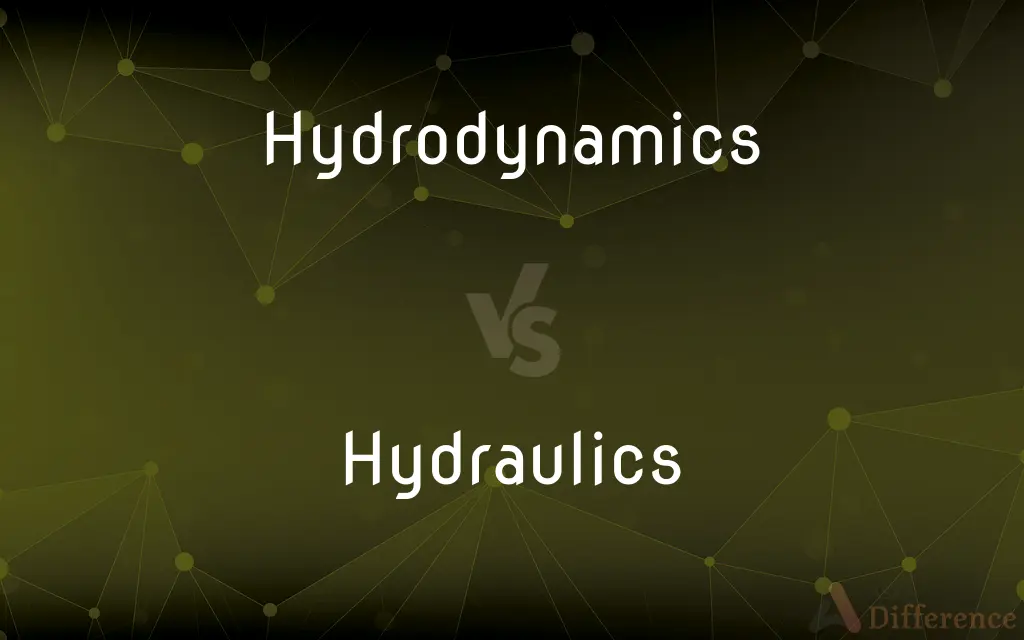Hydrodynamics vs. Hydraulics — What's the Difference?

Difference Between Hydrodynamics and Hydraulics
ADVERTISEMENT
Compare with Definitions
Hydrodynamics
(used with a sing. verb) The branch of science that deals with the dynamics of fluids, especially incompressible fluids, in motion.
Hydraulics
Hydraulics (from Greek: Υδραυλική) is a technology and applied science using engineering, chemistry, and other sciences involving the mechanical properties and use of liquids. At a very basic level, hydraulics is the liquid counterpart of pneumatics, which concerns gases.
Hydrodynamics
(used with a pl. verb) The dynamics of fluids in motion.
Hydraulics
The physical science and technology of the static and dynamic behavior of fluids.
Hydrodynamics
(physics) The scientific study of fluids in motion.
ADVERTISEMENT
Hydraulics
The engineering science that deals with practical applications where liquid is in motion and transmits energy.
Hydrodynamics
That branch of the science of mechanics which relates to fluids, or, as usually limited, which treats of the laws of motion and action of nonelastic fluids, whether as investigated mathematically, or by observation and experiment; the principles of dynamics, as applied to water and other fluids.
Hydraulics
The hydraulic system of a vehicle or other machine.
Hydrodynamics
Study of fluids in motion
Hydraulics
That branch of science, or of engineering, which treats of fluids in motion, especially of water, its action in rivers and canals, the works and machinery for conducting or raising it, its use as a prime mover, and the like.
Hydraulics
Study of the mechanics of fluids
Share Your Discovery

Previous Comparison
Cosmos vs. Aeon
Next Comparison
Accuse vs. Frame













































